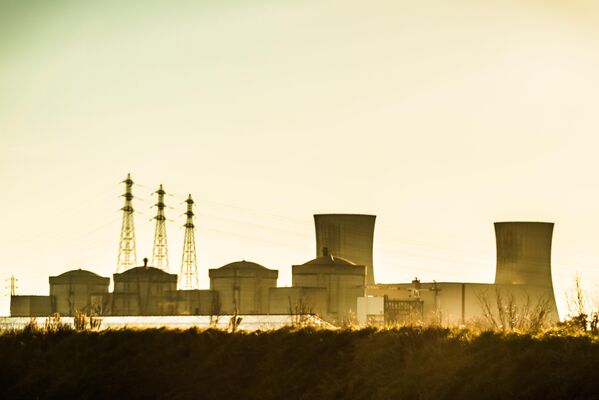Zimbabwe has formally expressed interest in exploring nuclear energy as part of its clean energy transition strategy, with the support of the International Atomic Energy Agency (IAEA). The announcement was made by Energy Minister Edgar Moyo during a parliamentary session last week, signaling the government’s intention to diversify its energy mix and enhance energy security.
Minister Moyo outlined the initial steps being taken to evaluate the feasibility of nuclear energy in Zimbabwe, emphasizing the country’s commitment to using the technology for peaceful purposes. “As Zimbabwe, we have expressed our interest to the IAEA in our desire to get into nuclear energy for peaceful purposes. They are with us and are taking us through,” Moyo stated.
Committees have been established to assess Zimbabwe’s readiness for nuclear energy, focusing on meeting key milestones before moving toward the development of small modular reactors (SMRs). These reactors are seen as a viable option for Zimbabwe due to their scalability and potential to integrate into the country’s clean energy strategy.
“Our contribution to the clean energy mix will be heightened once we achieve these milestones,” Moyo added, pointing to nuclear energy as a way to complement existing renewable energy sources and reduce reliance on fossil fuels.
Zimbabwe’s energy sector faces significant challenges, including heavy reliance on hydroelectric power, which is vulnerable to the impacts of climate change. The Kariba Hydro Power Plant, a critical source of electricity for the nation, has a capacity of over 1,000 MW but has struggled to maintain consistent output due to recurrent droughts.
In late November, the fragility of the region’s power infrastructure was underscored when both Zimbabwe and neighboring Zambia experienced nationwide blackouts. The outages, attributed to disturbances in the interconnected power networks of the two countries, highlighted the urgent need for a more robust and diversified energy system.
Nuclear energy offers Zimbabwe an opportunity to address its energy challenges while aligning with global efforts to combat climate change. Small modular reactors, in particular, are gaining traction worldwide for their ability to provide reliable and low-carbon power in regions with limited energy infrastructure.
If successfully implemented, nuclear energy could complement Zimbabwe’s existing energy sources, reduce dependence on hydro and thermal power, and bolster energy security. It would also position the country as a regional leader in adopting advanced energy technologies.
Zimbabwe’s partnership with the IAEA reflects a broader trend of African nations exploring nuclear energy as part of their development strategies. By working with the IAEA, Zimbabwe gains access to technical expertise, regulatory frameworks, and capacity-building programs that are essential for establishing a safe and sustainable nuclear energy sector.
The collaboration also underscores the importance of regional cooperation in addressing shared energy challenges. As a member of the Southern African Development Community (SADC), Zimbabwe has an opportunity to contribute to regional energy integration, leveraging nuclear energy to stabilize power supplies across borders.
While the journey toward nuclear energy is complex and requires substantial investment in infrastructure, training, and regulatory compliance, Zimbabwe’s early engagement with the IAEA demonstrates a proactive approach. The government’s focus on meeting international standards and milestones ensures that the transition will be carefully managed and aligned with global best practices.
Minister Moyo’s announcement marks the beginning of what could be a transformative chapter for Zimbabwe’s energy sector. By diversifying its energy portfolio and embracing innovative solutions, the country aims to enhance its resilience to climate change, reduce energy deficits, and support sustainable economic growth.
As Zimbabwe advances in its pursuit of nuclear energy, the world will watch closely, hopeful that this initiative will serve as a model for other African nations navigating the complexities of energy transition.














Leave a comment